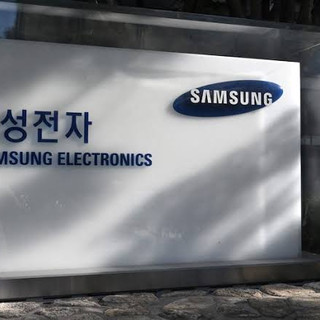Samsung sued for patent infringement by outdoor display manufacturer
- IP News Bulletin
- Sep 28, 2022
- 3 min read
Manufacturing Resources International (MRI), an Atlanta-based custom display manufacturer has filed a complaint in the US District Court for the Eastern District of Texas against Samsung Electronics and its partners with respect to high-brightness outdoor and window displays patent infringement.
The court complaint alleges five counts of direct infringement by Samsung on several aspects of MRI patents for cooling down displays, and specifically mentions Samsung's OH series of LED backlit outdoor and semi-outdoor (window) LCD displays.
The filing on August 19th requests a permanent injunction "prohibiting further infringement" and "specifically enjoining further manufacture, use, sale, importation, and/or offers for sale that fall within the scope of the patent claims." It also seeks damages, with one possible resolution being a "reasonable royalty" for the use of the patents on these products.
The same day, MRI's law firm filed a complaint with the US International Trade Commission under the Tariff Act of 1930, naming that group of Samsung companies, as well as Australia-based QSR solutions provider Coates Group and specialty display manufacturer Palmer Digital Group, which is based in the Chicago area.
That filing says:
Manufacturing Resources International, Inc. (“MRI” or “Complainant”) respectfully requests that the United States International Trade Commission institute an investigation pursuant to Section 337 of the Tariff Act of 1930, as amended, 19 U.S.C.§ 1337, to remedy the unlawful and unauthorized importation into the United States, the sale for importation, and/or the sale within the United States after importation of certain outdoor and semi-outdoor electronic displays, products containing same, and components thereof (the “Accused Products”) that infringe, either directly or indirectly, one or more claims ofU.S. Patent Nos. 8,854,595 (the “’595 Patent”); 9,173,322 (the “’322 Patent”); 9,629,287(the “’287 Patent”); 10,506,740 (the “’740 Patent”); 11,013,142 (the “’142 Patent”)(collectively, the “Asserted Patents”).
It goes on to say:
• MRI seeks relief from the Commission in the form of a limited exclusion order under 19 U.S.C. § 1337(d) excluding from entry into the United States any articles, including outdoor and semi-outdoor electronic displays, products containing same, and components thereof that infringe one or more claims of the Asserted Patents;
• MRI further seeks as relief cease-and-desist orders under 19 U.S.C. § 1337(d) that prohibit each Proposed Respondent from marketing, distributing, importing, selling, offering for sale, inducing the use of, or distributing outdoor and semi-outdoor electronic displays, products containing same, and components thereof that infringe one or more claims of the Asserted Patents;
• MRI seeks that the Commission impose a bond upon all Proposed Respondents who continue importing outdoor and semi-outdoor electronic displays, products containing same, and components thereof that infringe one or more claims of the Asserted Patents during the Presidential Review period.
Whereas the court filing, the complaint is focused on the Samsung OH series of displays and how they are cooled.
The trade filing focuses on "certain models of Samsung’s Accused Products can be installed in outdoor and semi-outdoor environments without additional housing or mechanical support. In many cases, however, Samsung’s Accused Products are sold to parties that integrate them into housings, enclosures, kiosks, and menu boards that, on information and belief, are installed in retail locations and/or sold to customers. On further information and belief, Samsung sells to, among others, integrators like Respondents Coates and Palmer (defined further below) that incorporate the Accused Products into housings, enclosures, kiosks, and menu boards that infringe the Asserted Patents.
What a company wants and what it gets out of court and trade commission filings probably varies greatly - but the crux of what MRI is asking here appears to be that Samsung stop bringing that product into the country and possibly even pull out what's already in the field. "That'll never happen," a lawyer might say, but that appears to be part of the request.
McDonald's is a major client for the Coates Group, and the majority of drive-thru lane displays deployed in recent years have been supplied by Coates, with Samsung displays in the enclosures. That equates to approximately 8,000 drive-throughs, the majority of which have multiple screens.
MRI founder Bill Dunn is understandably mum on the filings, but he did confirm their existence. If you asked him how to properly cool outdoor high-brightness screens, you'd be in for several hours of very technical explanations.
MRI has a reputation for manufacturing super-reliable screens that are rated to last 10 years or more, but the engineering required to ensure that longevity means the screens are more expensive than those of many competitors. The company has previously attempted to pursue QSR drive-thru business, but franchisees who must pay for screens are, predictably, looking to control capital costs. MRI has had a lot of success with OOH media owners and has around 40,000 in the field.












Comments